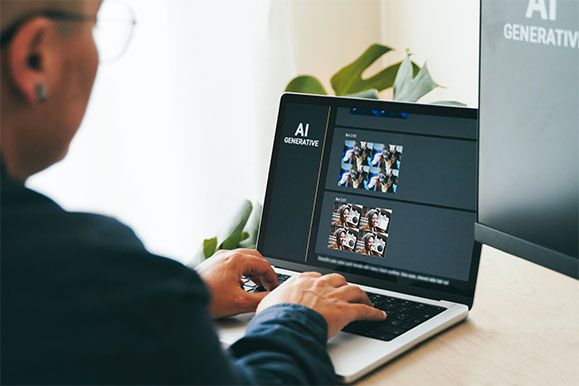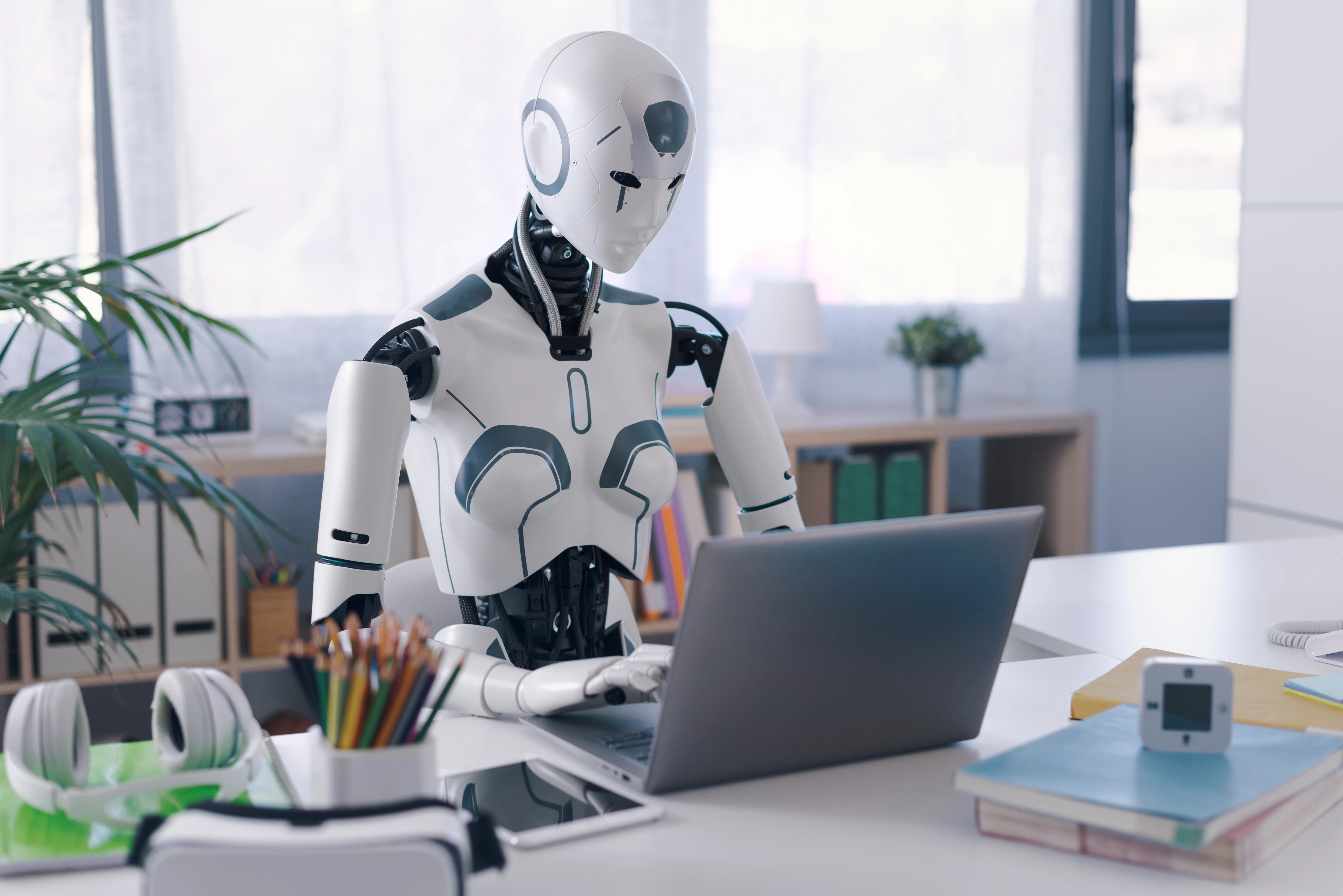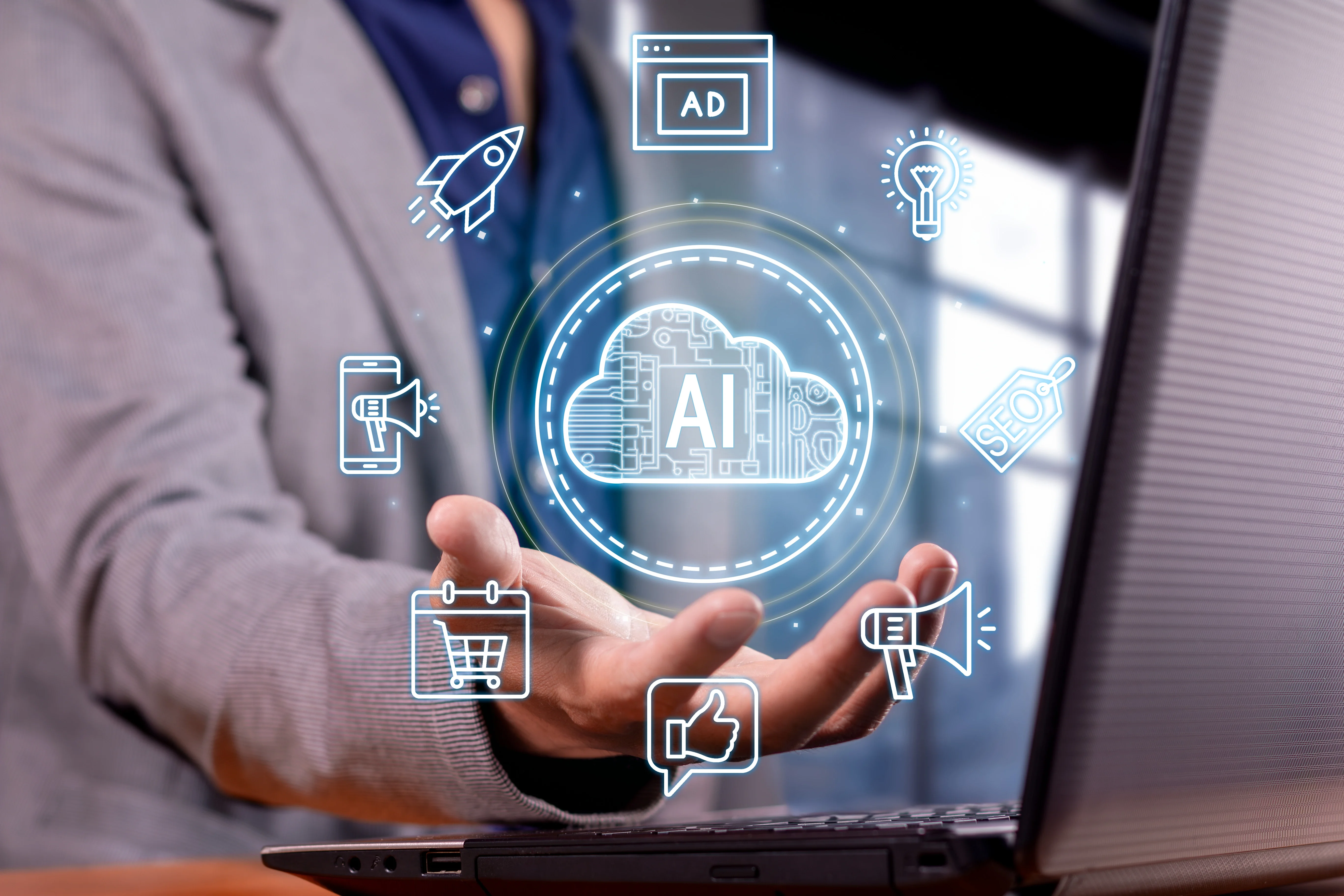In this post, we'll delve into the impact of AI on marketing and explore the relationship between these two realms.
Artificial intelligence (AI) has captured our imaginations and permeated virtually every aspect of our lives. AI is behind the virtual assistants (e.g., Siri, Alexa, Bixby) that wake us up for the day, our smart refrigerators that create shopping lists for food items we're running low on, recommended movies and songs on our entertainment apps, those self-driving cars on our roads, and many more.
It’s clear that AI has become an omnipresent force, shaping industries and sparking discussions about efficiency, privacy, and ethics, among others. Of the many sectors caught in the whirlwind of AI's transformative power, marketing stands as a fascinating battleground where curiosity and apprehension intertwine. Many marketers are already using some form of AI in performing their marketing jobs, but some have noted that AI-generated output seem to lack emotion, fail to convey empathy, or even downright neglect relevancy.
So keep reading as we answer the question, “Will marketing be replaced by AI?”. At the end of this article, we'll also share a solution that will help marketers maintain relevancy and infuse empathy into their marketing campaigns to build human connection.
Table of Contents
The Current State of AI in Marketing
Advantages of Using AI in Marketing
Limitations of AI in Marketing
The Answer to “Will Marketing Be Replaced by AI?”
The Future of AI Marketing
The Current State of AI in Marketing
AI technologies have already made significant inroads into marketing, fundamentally changing the way businesses from virtually all sectors promote their products and services.
Before we ask, “Will marketing be replaced by AI?”, let’s take a look at some key areas where AI is already playing a prominent role:
Data Analysis and Insights
AI-powered tools are incredibly efficient at processing vast amounts of data and extracting valuable insights that guide business decisions. Marketers are now using AI-powered algorithms to analyze consumer behavior, market trends, and social media interactions. This data-driven approach enables companies to make informed decisions, refine their strategies, and optimize their campaigns for better results.
Personalization
One of the most valuable benefits of using AI in marketing is its ability to create personalized experiences for consumers. AI algorithms enable marketers to analyze customer data and tailor content, product recommendations, and advertising to individual preferences. This personalization enhances customer engagement and satisfaction. We all appreciate recommendations of similar movies (or songs, books, etc.) as the ones we just enjoyed.
Content Creation
Another outstanding capability of AI is its power to generate content efficiently and at scale. For instance, there are AI tools that help marketers write product descriptions, generate social media posts, and even create news articles in just a matter of minutes.Keep in mind, however, that these tools are not yet at the level of human creativity. There are also numerous reports of inaccurate information and plagiarized content being produced by AI software. However, they can still save time and effort in the content creation process.
Ad Campaign Optimization
Marketers can use AI platforms to analyze the performance of ad campaigns in real time and make automatic adjustments to optimize results. This includes adjusting bidding strategies, targeting parameters, and ad creatives to maximize ROI.
Chatbots and Customer Support
Last but not least, AI-powered chatbots are increasingly becoming the first point of contact for many businesses’ customer inquiries and support. These bots can provide real-time assistance, answer frequently asked questions, and even facilitate transactions. They offer businesses a cost-effective way to provide round-the-clock customer service.
Advantages of Using AI in Marketing
Those are just some of the most common uses of AI in marketing, so it seems natural to wonder, “Will digital marketing be replaced by AI?”.
There’s no doubt that AI's integration into the marketing world brings many advantages to businesses. The top benefits that companies get from harnessing AI include the following:
- Efficiency and Productivity: Marketing automation enables marketing teams to focus on more strategic and creative aspects of their work by handling repetitive, time consuming tasks. This helps increase productivity and improve resource allocation.
- Better Customer Insights: AI tools provide deeper and more granular insights into customer behavior and preferences. Armed with this knowledge, savvy marketers can create more relevant and effective marketing campaigns.
- Personalization at Scale: In addition, AI allows businesses to deliver personalized experiences to a large audience without the need for manual customization. This promotes customer engagement and can boost conversion rates.
- Real-time Decision Making: AI software can analyze extensive amounts of data in real time. This empowers marketers to make quick and informed decisions based on real-time developments, current trends, and actual customer interactions.
- Cost Savings: On top of all of those benefits, marketing automation of tasks and processes using AI technology can significantly reduce operational costs, especially in customer support and data analysis.
Limitations of AI in Marketing
Despite delivering tremendous benefits in marketing, the use of AI in marketing also comes with unique limitations and challenges. Some of the most concerning of those include the following:
- Lack of Creativity: Despite their intelligence, AI algorithms display an apparent lack of human creativity and emotional intelligence (at least, as of this writing). Many marketers have observed that although AI can generate content and optimize campaigns based on data, it often struggles with creating genuinely unique and emotionally resonant marketing materials.
- Potential for Bias: Another concern is that AI algorithms can inherit biases that are present in the data they are trained on. This can lead to unintended discrimination in marketing campaigns if not carefully monitored and addressed.
- Overreliance on Algorithms: In addition to potential biases, overdependence on AI can lead to a loss of human judgment and intuition. Therefore, marketers who use AI technology in some aspect of their work must learn to strike a balance between data-driven decisions and creative instincts.
- Initial Costs: Although AI tools can be very helpful to businesses, implementing AI solutions can be expensive, especially for startups and small to medium-sized businesses. The substantial initial investment in technology and training can be a major barrier to entry.
- Data Privacy Concerns: Finally, the extensive use of AI in collecting and analyzing customer data raises concerns about privacy and security. Marketers need to review and abide by current regulations and ethical concerns when using AI technology in marketing activities.
The Answer to “Will Marketing Be Replaced by AI?”
As AI continues to evolve and make a greater impact on people’s day-to-day lives, we can only expect its role in marketing to grow even larger and become more complex than it currently is.
Here are some of the latest AI trends and their implications for the marketing industry:
- Hyper-Personalization: Experts believe AI will enable even more precise and personalized marketing experiences, with algorithms predicting individual customer needs and preferences accurately.
- Augmented Creativity: AI tools are expected to assist marketers in creative tasks, providing suggestions and insights to enhance content and campaigns. Although it may take a while for it to (or it might never at all) come close to human creativity, AI creativity can generate novel ideas that might not even be possible from human imagination.
- Voice and Visual Search: Experts foresee AI-driven voice and visual search to become more and more prevalent. This means that marketers would need to optimize their content and advertising accordingly.
- Predictive Analytics: AI is also expected to play a more prominent role in predictive analytics, helping businesses anticipate market trends and consumer behavior.
- Enhanced Customer Service: AI-powered chatbots and virtual assistants are anticipated to become even more sophisticated than they are at present. We can expect them to offer more seamless and human-like interactions with customers in the coming years.
- Ethical Considerations: Lastly, as AI becomes more and more integrated into marketing, expect ethical considerations surrounding data privacy, bias, and transparency to gain more importance and attention.
With all of that information, we come to the ultimate question: “Will marketing be replaced by AI?”.
While no one holds the crystal ball for the future (not even AI, we presume), we need to recognize that the human element remains indispensable.
Indeed, AI can automate repetitive tasks, boost efficiency, provide valuable insights, and more. There’s no doubt that there will be many jobs AI will replace. However, it can never replace the creativity, empathy, and strategic thinking that humans can bring to marketing.
Marketers—human marketers, that is—will continue to play the most crucial role when it comes to shaping brand identities, crafting compelling stories, and building meaningful relationships with customers, with AI as their weapon. As AI takes on more routine and data-driven tasks, marketers can focus on strategic planning, creative thinking, and connecting with audiences on a deeper level.
The Future of AI Marketing
In conclusion, the answer to “Will marketing be replaced by AI?” is complex and multifaceted. AI has already made significant advances in marketing, offering businesses a handful of benefits in terms of efficiency, personalization, data analysis, and more. However, it also comes with a handful of limitations and challenges that need to be addressed.
With AI, the future of marketing is very promising, with more hyper-personalization, augmented creativity, and predictive analytics in the near future. Nevertheless, we know that the human element in marketing is still hard to replace, as human marketers bring creativity, empathy, and strategic thinking to the table—so there will always be AI proof jobs.
Ultimately, the most successful marketing strategies will likely be those that strike the right balance between AI-driven data insights and human creativity, creating powerful, emotionally resonant campaigns that connect with audiences and can drive growth.
Are you looking for AI marketing tools that combine the limitless capabilities of AI, the unparalleled creativity of the human mind, and the incredible power of empathy and connection?
Sign up at aicmo.io today and create a customized marketing plan for your business that’s guided by AI insights and infused with empathy—for free!

- 5 min read
All you need to do is answer a few simple questions, and our advanced platform will craft a personalized strategic marketing plan that aligns with your unique business objectives. Best of all, it’s 100% FREE.


- 34145 Pacific Coast Highway, #130 Dana Point, CA 92629
- Phone Number (toll-free): 1-877-359-2577
- contact@aicmo.io




